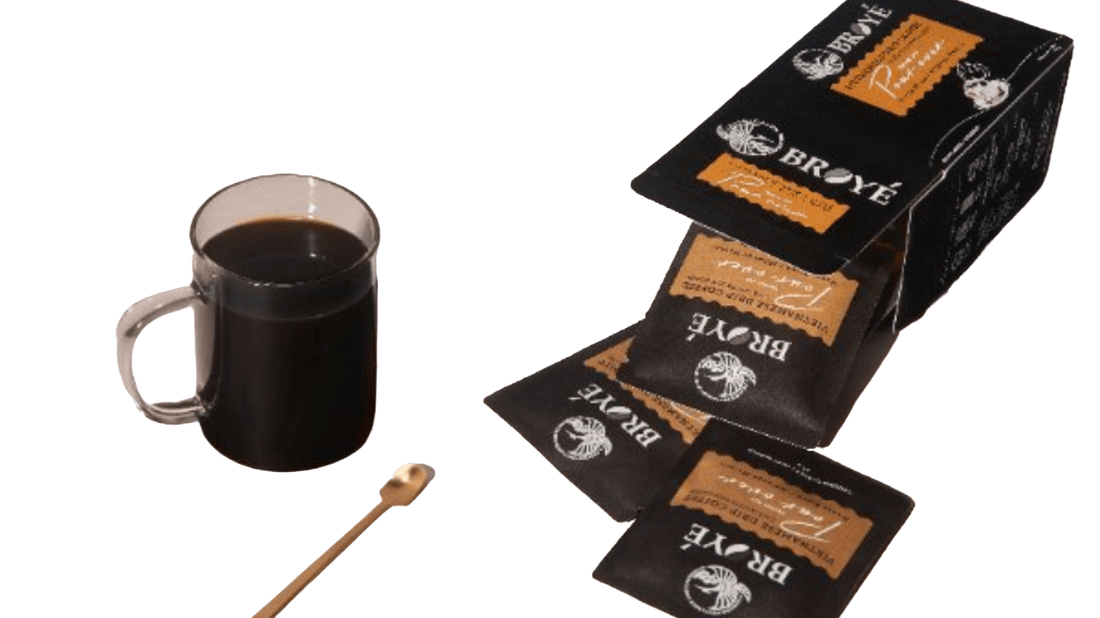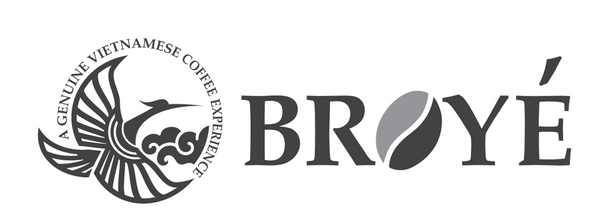
Discover the Bold, Smooth World of Vietnamese Coffee — at Broyé
Coffee is one of the most universally loved beverages, enjoyed from Colombia to Brazil to Vietnam. At Broyé, we bring you a globally celebrated favorite with a unique twist — bold, rich, and unmistakably Vietnamese.
Did you know Vietnam is the second-largest coffee producer in the world, right after Brazil? Despite its massive contribution to the global coffee supply, many coffee drinkers remain unaware of Vietnam’s role — largely due to a lack of transparency in sourcing.
In the U.S., for example, only 16% of consumers associate Vietnam with coffee, even though the country is the #2 exporter of coffee beans to the U.S.. That means countless Americans are enjoying delicious Vietnamese coffee every day — often without knowing it.
At Broyé, we’re proud to spotlight Vietnamese coffee for what it truly is: bold, complex, and deeply satisfying. Our beans are single-origin, responsibly sourced, and roasted to highlight the natural richness of Vietnamese robusta.
So what sets Vietnamese coffee apart?
Vietnam is the world’s top producer of robusta beans, while other coffee giants like Brazil and Ethiopia focus primarily on arabica. The difference? It starts with the bean — and ends with an unforgettable cup.
Robusta beans are, as the name implies, more robust. They contain more antioxidants, and 60% less sugar and fat than arabica. The result? A bolder, smoother brew with deep, earthy notes of chocolate and nuts. It’s no wonder robusta pairs beautifully with milk or cream — making it a star in Vietnamese iced coffee (cà phê sữa đá), a Broyé favorite.
Even better? Robusta beans are more sustainable. Unlike arabica, which grows best in high-altitude tropical climates, robusta thrives from sea level upward and is naturally pest-resistant — thanks to its higher caffeine content. These resilient trees yield more coffee using less land and fewer resources, making robusta better for the planet and your daily brew.
If you’ve never had true Vietnamese coffee before, prepare for something different. The flavor is bold yet smooth, intense yet balanced — a full-bodied experience that leaves a lasting impression. Especially when brewed the traditional way and served over ice with sweetened condensed milk, the result is sweet, rich, refreshing, and complex all at once.
Curious? Taste Vietnamese coffee, the Broyé way — where every cup celebrates culture, sustainability, and flavor without compromise.
Think Vietnamese coffee is too bitter or burnt? You’ve probably never had the real thing. We promise — one sip at Broyé, and you’ll be a convert.
